KOREA'S MESSAGE TO JAPAN
입력 2019.07.11 (14:57)
수정 2019.07.11 (16:45)
읽어주기 기능은 크롬기반의
브라우저에서만 사용하실 수 있습니다.
[Anchor Lead]
At a meeting with the CEOs of Korea's 30 largest conglomerates, President Moon Jae-in sent a message to Japan urging the government to respond to Seoul's efforts, to find diplomatic solutions and to no longer take a dead-end path. Meanwhile leaders of Korean businesses asked for more government subsidies for local production of materials and easing of regulations.
[Pkg]
Leaders of Korea's 30 largest conglomerates gathered at Cheong Wa Dae. This was the first emergency meeting between President Moon Jae-in and the business figures since Japan imposed export restrictions on South Korea. He told them that Seoul is doing all it can to resolve this issue diplomatically and repeatedly asked Tokyo to respond to such efforts. The president also sent a clear warning to the Japanese government's attempt to associate its export restrictions with North Korean sanctions.
[Soundbite] PRES. MOON JAE-IN : "I hope Japan no longer takes the dead-end path. Groundless association with North Korean sanctions does no good for bilateral ties and security cooperation."
Moon mentioned for the first time that this situation may drag out, and proposed setting up a joint emergency response system between the private and public sectors to find both short-term and fundamental solutions. The business leaders put forth their own suggestions. In order to lower Korea's dependence on Japanese parts and materials, they recommended diversifying purchasing networks with the help from Russia and Germany, carrying out M&As in the strategic parts industries, as well as easing financial and environmental regulations. LG Chair Koo Kwang-mo admitted that large businesses were lazy in developing parts materials locally and pledged to work harder in that regard.
[Soundbite] KO MIN-JUNG(CHEONG WA DAE SPOKESWOMAN) : "Business leaders said they will take this opportunity to establish roots in the parts industry by strengthening cooperation with their suppliers."
The meeting went on for 120 minutes, longer than scheduled and without breaking for lunch. The nation's top office said that the government and the corporate sector were able to come together as one, but some business figures voiced concerns that they discussed only mid-to-long-term measures without finding any effective solutions.
At a meeting with the CEOs of Korea's 30 largest conglomerates, President Moon Jae-in sent a message to Japan urging the government to respond to Seoul's efforts, to find diplomatic solutions and to no longer take a dead-end path. Meanwhile leaders of Korean businesses asked for more government subsidies for local production of materials and easing of regulations.
[Pkg]
Leaders of Korea's 30 largest conglomerates gathered at Cheong Wa Dae. This was the first emergency meeting between President Moon Jae-in and the business figures since Japan imposed export restrictions on South Korea. He told them that Seoul is doing all it can to resolve this issue diplomatically and repeatedly asked Tokyo to respond to such efforts. The president also sent a clear warning to the Japanese government's attempt to associate its export restrictions with North Korean sanctions.
[Soundbite] PRES. MOON JAE-IN : "I hope Japan no longer takes the dead-end path. Groundless association with North Korean sanctions does no good for bilateral ties and security cooperation."
Moon mentioned for the first time that this situation may drag out, and proposed setting up a joint emergency response system between the private and public sectors to find both short-term and fundamental solutions. The business leaders put forth their own suggestions. In order to lower Korea's dependence on Japanese parts and materials, they recommended diversifying purchasing networks with the help from Russia and Germany, carrying out M&As in the strategic parts industries, as well as easing financial and environmental regulations. LG Chair Koo Kwang-mo admitted that large businesses were lazy in developing parts materials locally and pledged to work harder in that regard.
[Soundbite] KO MIN-JUNG(CHEONG WA DAE SPOKESWOMAN) : "Business leaders said they will take this opportunity to establish roots in the parts industry by strengthening cooperation with their suppliers."
The meeting went on for 120 minutes, longer than scheduled and without breaking for lunch. The nation's top office said that the government and the corporate sector were able to come together as one, but some business figures voiced concerns that they discussed only mid-to-long-term measures without finding any effective solutions.
■ 제보하기
▷ 카카오톡 : 'KBS제보' 검색, 채널 추가
▷ 전화 : 02-781-1234, 4444
▷ 이메일 : kbs1234@kbs.co.kr
▷ 유튜브, 네이버, 카카오에서도 KBS뉴스를 구독해주세요!
- KOREA'S MESSAGE TO JAPAN
-
- 입력 2019-07-11 15:08:52
- 수정2019-07-11 16:45:30
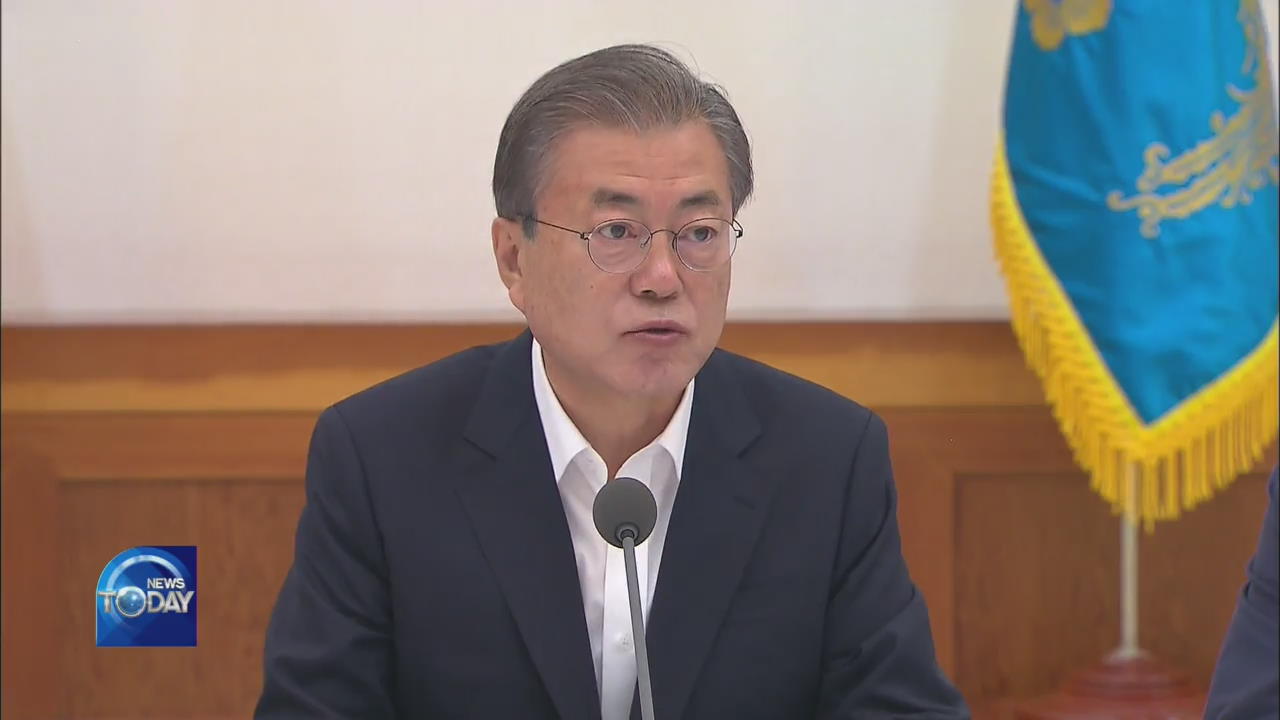
[Anchor Lead]
At a meeting with the CEOs of Korea's 30 largest conglomerates, President Moon Jae-in sent a message to Japan urging the government to respond to Seoul's efforts, to find diplomatic solutions and to no longer take a dead-end path. Meanwhile leaders of Korean businesses asked for more government subsidies for local production of materials and easing of regulations.
[Pkg]
Leaders of Korea's 30 largest conglomerates gathered at Cheong Wa Dae. This was the first emergency meeting between President Moon Jae-in and the business figures since Japan imposed export restrictions on South Korea. He told them that Seoul is doing all it can to resolve this issue diplomatically and repeatedly asked Tokyo to respond to such efforts. The president also sent a clear warning to the Japanese government's attempt to associate its export restrictions with North Korean sanctions.
[Soundbite] PRES. MOON JAE-IN : "I hope Japan no longer takes the dead-end path. Groundless association with North Korean sanctions does no good for bilateral ties and security cooperation."
Moon mentioned for the first time that this situation may drag out, and proposed setting up a joint emergency response system between the private and public sectors to find both short-term and fundamental solutions. The business leaders put forth their own suggestions. In order to lower Korea's dependence on Japanese parts and materials, they recommended diversifying purchasing networks with the help from Russia and Germany, carrying out M&As in the strategic parts industries, as well as easing financial and environmental regulations. LG Chair Koo Kwang-mo admitted that large businesses were lazy in developing parts materials locally and pledged to work harder in that regard.
[Soundbite] KO MIN-JUNG(CHEONG WA DAE SPOKESWOMAN) : "Business leaders said they will take this opportunity to establish roots in the parts industry by strengthening cooperation with their suppliers."
The meeting went on for 120 minutes, longer than scheduled and without breaking for lunch. The nation's top office said that the government and the corporate sector were able to come together as one, but some business figures voiced concerns that they discussed only mid-to-long-term measures without finding any effective solutions.
At a meeting with the CEOs of Korea's 30 largest conglomerates, President Moon Jae-in sent a message to Japan urging the government to respond to Seoul's efforts, to find diplomatic solutions and to no longer take a dead-end path. Meanwhile leaders of Korean businesses asked for more government subsidies for local production of materials and easing of regulations.
[Pkg]
Leaders of Korea's 30 largest conglomerates gathered at Cheong Wa Dae. This was the first emergency meeting between President Moon Jae-in and the business figures since Japan imposed export restrictions on South Korea. He told them that Seoul is doing all it can to resolve this issue diplomatically and repeatedly asked Tokyo to respond to such efforts. The president also sent a clear warning to the Japanese government's attempt to associate its export restrictions with North Korean sanctions.
[Soundbite] PRES. MOON JAE-IN : "I hope Japan no longer takes the dead-end path. Groundless association with North Korean sanctions does no good for bilateral ties and security cooperation."
Moon mentioned for the first time that this situation may drag out, and proposed setting up a joint emergency response system between the private and public sectors to find both short-term and fundamental solutions. The business leaders put forth their own suggestions. In order to lower Korea's dependence on Japanese parts and materials, they recommended diversifying purchasing networks with the help from Russia and Germany, carrying out M&As in the strategic parts industries, as well as easing financial and environmental regulations. LG Chair Koo Kwang-mo admitted that large businesses were lazy in developing parts materials locally and pledged to work harder in that regard.
[Soundbite] KO MIN-JUNG(CHEONG WA DAE SPOKESWOMAN) : "Business leaders said they will take this opportunity to establish roots in the parts industry by strengthening cooperation with their suppliers."
The meeting went on for 120 minutes, longer than scheduled and without breaking for lunch. The nation's top office said that the government and the corporate sector were able to come together as one, but some business figures voiced concerns that they discussed only mid-to-long-term measures without finding any effective solutions.
이 기사가 좋으셨다면
-
좋아요
0
-
응원해요
0
-
후속 원해요
0










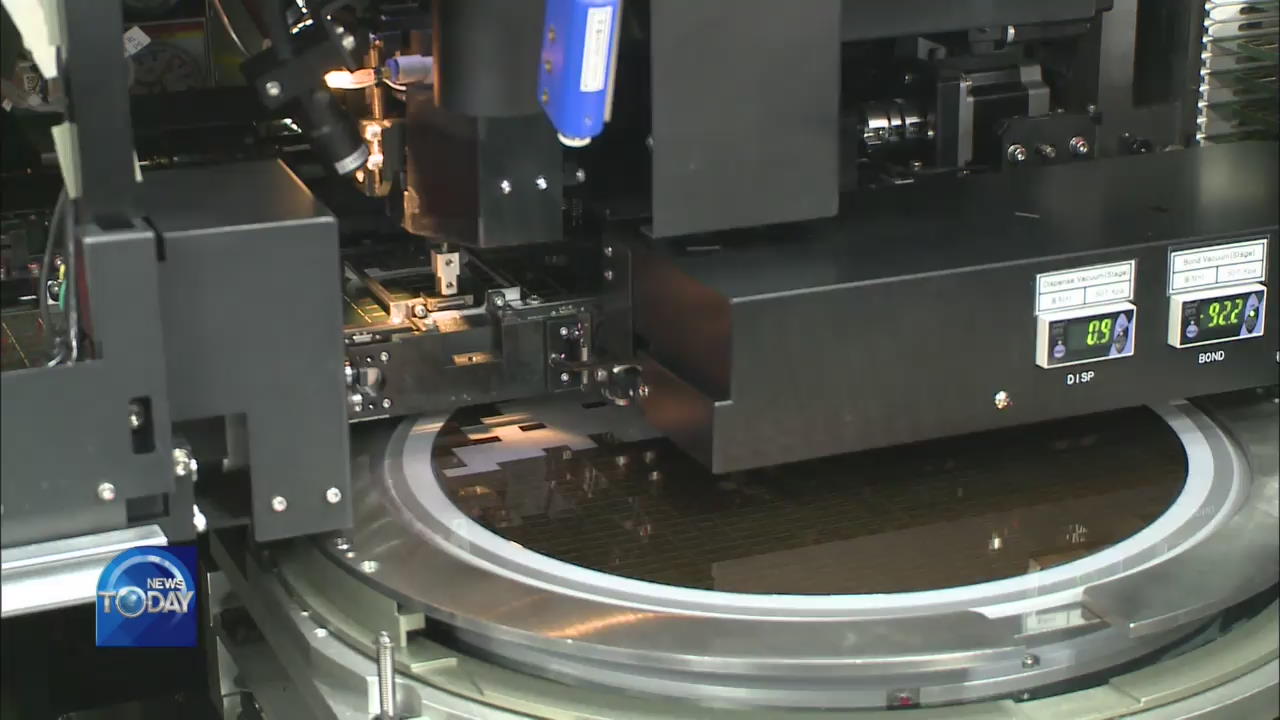
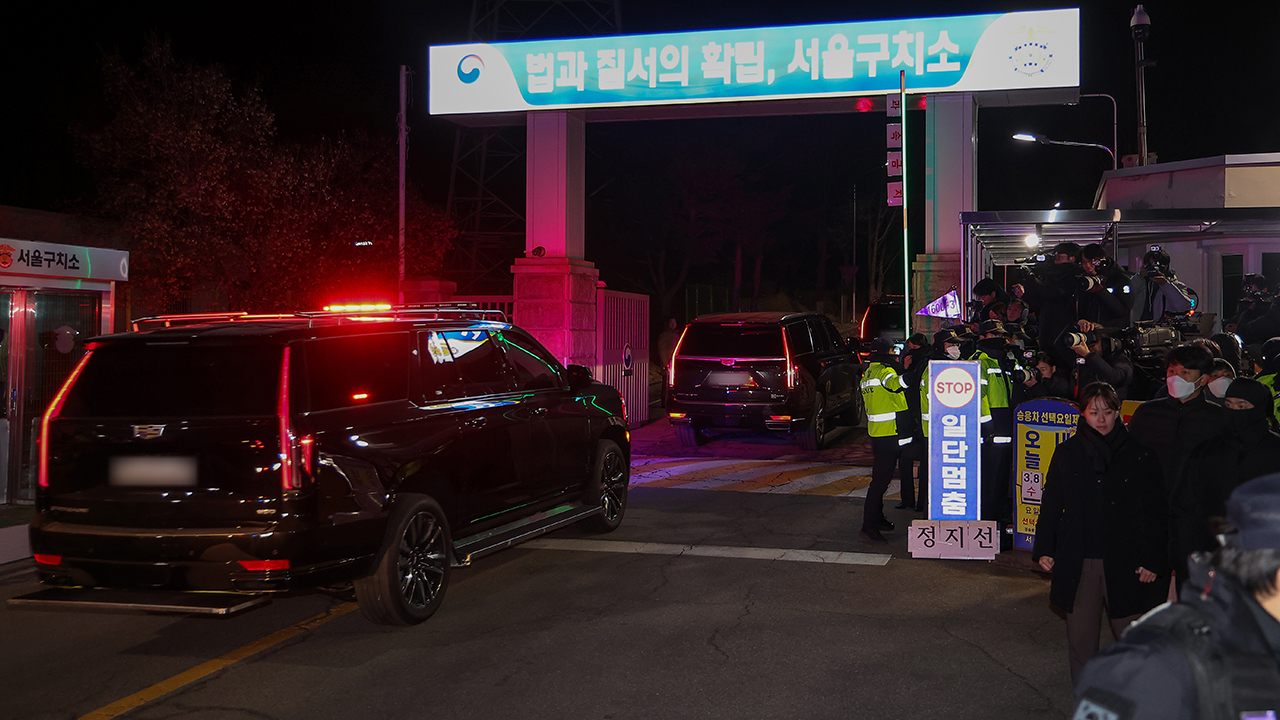
![[속보] 윤 대통령 변호인단 “서울중앙지법에 체포적부심사 청구”](/data/news/2025/01/15/20250115_ro6HJL.jpg)
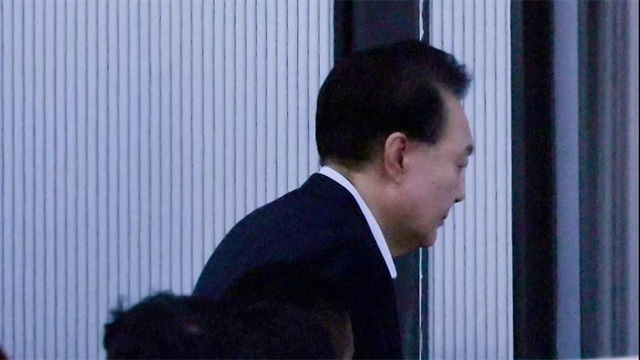
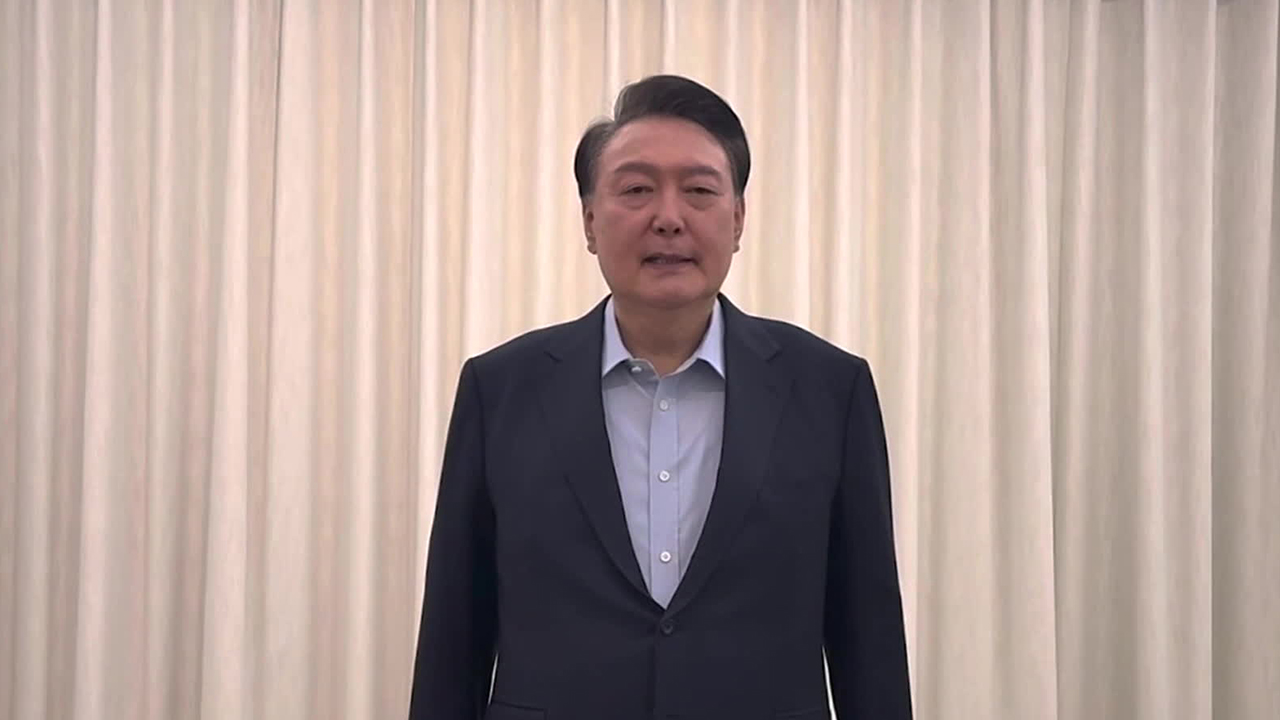

이 기사에 대한 의견을 남겨주세요.